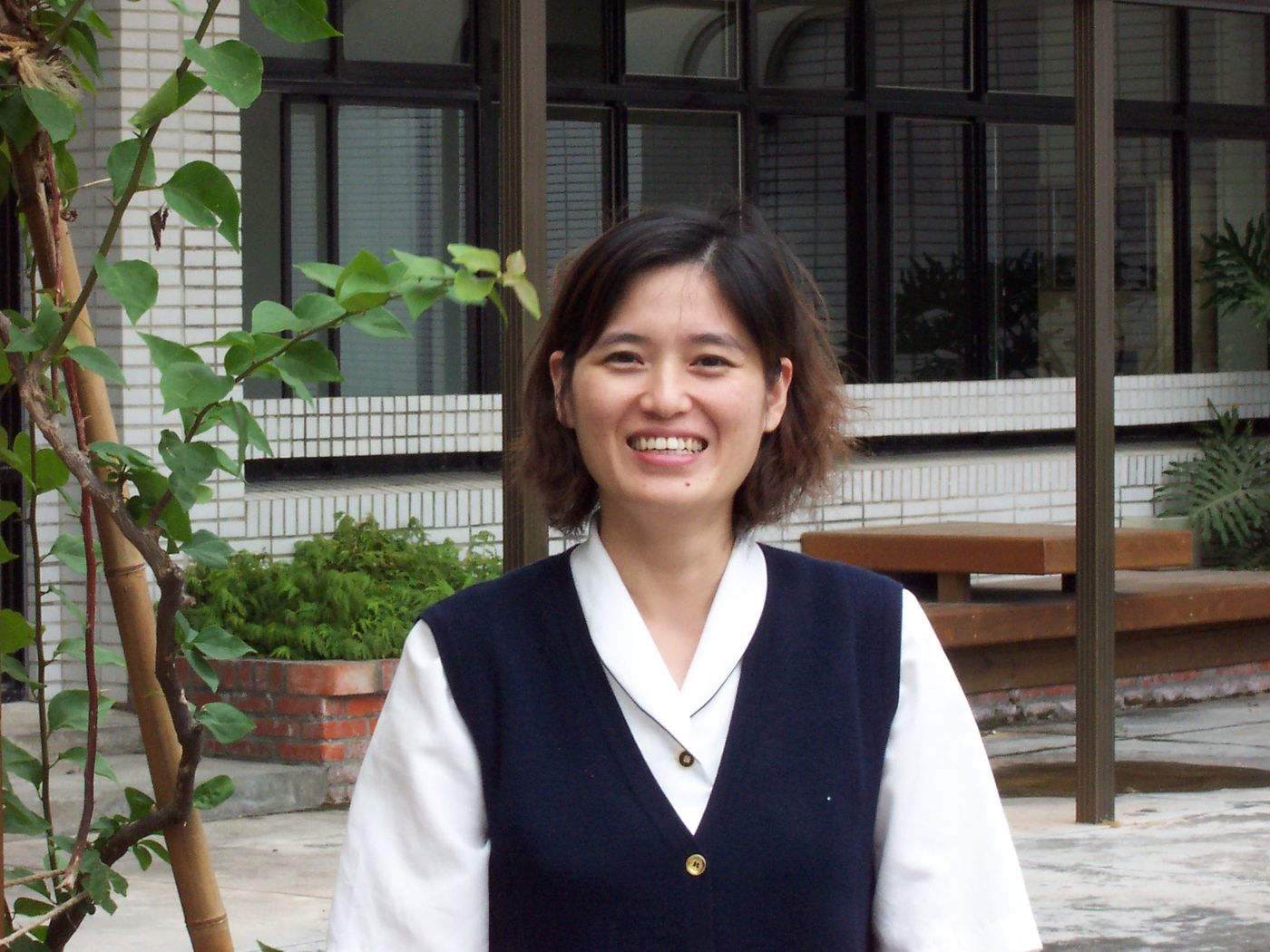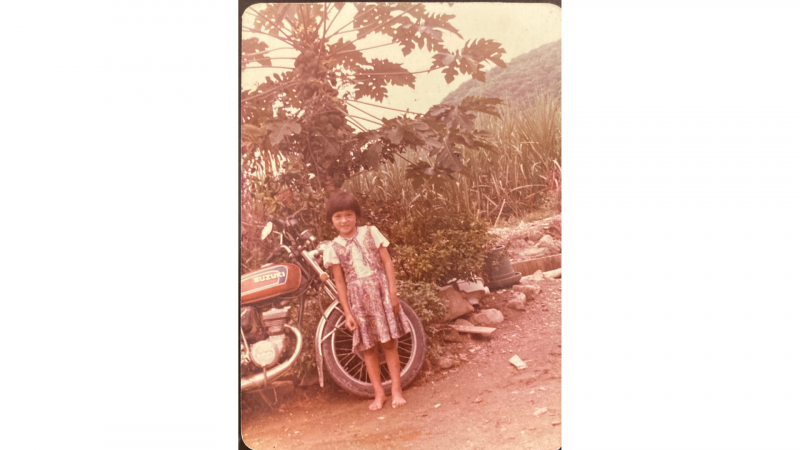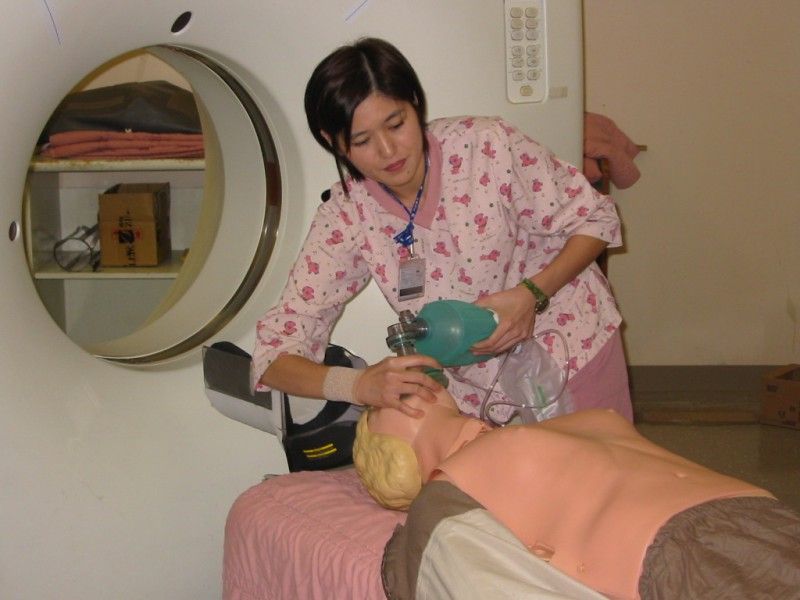
世界走走|她的故事與妳同行
184 | She wove a net of cultural care in her hometown and picked up the aboriginal people who were left behind by the medical system

Text / Xiao Zihan (Contributing Writer) (Original post published on August 1, 2022)
Today (August 1) is Indigenous Peoples Day in Taiwan. For decades, there has been a gap that cannot be ignored between the average life expectancy of indigenous peoples and the general population: according to a survey by the Ministry of the Interior, in 2020, the average life expectancy of Taiwan's aborigines is 7.3 years less than the average life expectancy of the Taiwanese as a whole. . In 2019, Indigenous infant mortality was twice the national rate. At this moment, the "Indigenous Peoples Health Law" is still lying in the Legislative Yuan. The law is related to the issue of ethnic health equality, including details such as funding, cultivating culturally sensitive medical personnel, and building a health database, which need urgent attention.
However, in recent years, "tribal cultural health stations" have gradually become popular, allowing culturally sensitive ethnic groups to "take care of their own people", and have also initially improved the health inequality between ethnic groups. On Indigenous Peoples Day, the World Walk wants to bring readers to know a woman behind the "Aboriginal Health Law" and Cultural Health Station, who has been working for aboriginal medical care for many years.
Yi Mao. Yi-Maun Subeq is a Taroko, a medical worker, and an important promoter of the Cultural Health Station and the Aboriginal Health Law.
In an era when few people studied aboriginal health, she went all the way from the Institute of Aboriginal Health to the Institute of Medical Sciences, became the first doctor of medical philosophy of the Taroko people, and then actively participated in the reform of aboriginal medical policy. For Yu Yimao, these nearly 20 years of hard work are all to solve the doubts that cannot be answered clinically.
"That year, when I was serving in the clinic, I heard a clan member screaming in pain from the hospital bed. I asked him if he didn't take painkillers? He said to me: 'The medical staff think that the aborigines love to drink, and painkillers are useless'. "
This is what Yimao saw at the medical scene when he was a nurse. And this isn't the first time she's heard such a thing.
Yimao's father is Han Chinese and his mother is Taroko. Since childhood, their family lived in Guofuli, Hualien County, where the Sakilaya and Han people live together.

"You are a fanboy, your mother is a fangirl, don't come here."
She remembers that when she was a child playing with the neighbor's children, she often saw disgust in the eyes of adults, and some even drove her away directly and told her not to interact with her own children. She also remembered that her mother would teach her to speak the ethnic language when she was a child, but in the unfriendly neighborhood atmosphere, her mother gradually stopped teaching her and even started to speak Taiwanese. In addition, the school also banned the speaking of the ethnic language at the time, and if you did, you would be fined.
"When I was young, I was very unconvinced by the voices of discrimination. Because I didn't want to lose, I felt that I had to work harder."
In order not to let the neighbors look down on her, Yimao studied hard, and her grades were getting better and better. She also began to take an interest in medicine when she was in middle school. At that time, both of her parents had problems with their physical health. During the process of accompanying her family to the hospital, she felt the greatness of nursing work, and decided to enter a nursing college. After graduation, she entered the hospital as a nurse.
At that time, she thought that it would be a good choice if she could use this as a career, but she did not expect that it would become a "vocation".
The medical system is "ethnic blind" and cannot cure injuries
"In the hospital, whenever we saw the faces of our tribesmen, we probably knew that each other was aboriginal. They would ask me: 'Where are you from?' communicate with each other.”
But in those few years, Yimao often saw the clansmen being treated unkindly.
"There are often medical staff who will say to the returning case: 'Why are you back? Have you been drinking again?' or insinuating that his profession is an alcoholic? A lot of stigma is permeated in the interaction."
She also observed that when medical staff explained their illnesses or health education knowledge to the tribesmen, most of them didn't stay for long.
Due to the gap in knowledge and education between the clansmen and medical staff, the clansmen often do not know how to reflect their needs or take the initiative to ask their own medical conditions, and many doctors feel that they cannot understand too many explanations, causing many aboriginal patients to return home. I don't know how to take care of myself.
For example, some patients with hip replacements need complete health education information, including: What are the contraindications to movements after returning home? How to wash up? How soon can I start work and use transportation? How to avoid joint slippage? When will you return to the hospital?
Without a complete understanding of this aspect, many aboriginal men will act heroically, thinking that they can start work as long as there is no pain. As a result, the artificial joint often slips, and they have to return to the hospital, and the day they can return to the workplace is far away. In addition, the traditional aboriginal society has no concept of saving and financial management, and most of the men are the economic backbone of the family. Once they are unable to work, the livelihood of many families will collapse instantly.

In the hospital, only a very small number of people can afford to live in a single room when they are hospitalized. Most people generally choose free beds paid by health insurance, and five or six people live in one room.
The colonial history of the past hundreds of years has made indigenous peoples relatively disadvantaged in terms of socioeconomic status, educational level or language and culture. Over the years, in the "Top Ten Causes of Death in China" list, the proportion of aboriginal people suffering from cancer, hepatitis, diabetes, heart disease, etc. is higher than that of other ethnic groups.
There are many reasons behind this: for example, the indigenous ethnic groups that are socially, economically and educationally disadvantaged have a relatively large working class and relatively insufficient health awareness. In most cases of high-risk, high-intensity labor work, overwork injuries and occupational accidents are more likely to occur; if health policies are not culturally appropriate, they will be intertwined, resulting in a high rate of illness among indigenous peoples.
Yimao sighed that if the medical system fails to realize that the health of the aboriginal people is also affected by social factors such as economy, education, gender, etc., and continues to lack awareness of the culture and care of the aboriginal people, it will shorten the average life expectancy gap between the original and Han people. .
She also said that she had seen too many cases in the hospital, but there was limited change she could make. Twenty years ago, the rank of the nurse was not high: in the clinic, the nurse had to clean the environment; in the medical center, in the face of the doctor's order, the nurse had no qualifications to question, and their doctor's order, like a decree, was the final decision.
Seeing the loopholes in the medical system, she realized that only through education and systematically cultivating professional workers with sufficient cultural sensitivity can the problems encountered by indigenous peoples in the medical and health care system be solved.
Awareness of "cultural care" needed from education to policy
In 2013, the Taiwan Indigenous Peoples Council held the "Aboriginal National Affairs Conference" for the first time. In this meeting, Yimao first proposed to incorporate the concept of "cultural care" into the policy.
Cultural care means that professional caregivers must have the ability to understand the culture of different ethnic backgrounds, such as diet, social and economic conditions, language, customs, etc., and under the context of this knowledge and ability, "tailor-made" the most appropriate care.
"In mainstream education, the concept of 'cultural care' is rarely incorporated, resulting in a lack of awareness in many policies. With this concept, we can provide different knowledge, attitudes and behaviors of care according to different ethnic groups."
"For example, the way to prevent gout with the alpine indigenous group is not to tell him not to eat seafood, because it is not his staple food, but to talk to him about the internal organs of animals not to eat (such as the precious flying squirrels caught in the hunting season) Or the internal organs of wild boars, etc.), heavy salt... These are the most important connotations of cultural care.”
[This article is not over, see "Walking the World" for the full text: She weaves a net of cultural care in her hometown and picks up the aborigines who have been left behind by the medical system ]
176. An Abe, each statement: "supporter" or "destroyer" of democratic peace?
177. "The uterus and vagina are 3D!": The 18-year revolution of menstruation leader Vanessa
179. Sun Xiaojiao column: Will there be hip-hop in China in 2022? When a rapper sings a patriotic theme
180. Sidenotes of Cross-Border Dialogue: What Will the U.S. Uterine War Change?
183. Remember them: 4 pro-democracy activists executed in Myanmar coup
184. She weaves a net of cultural care in her hometown and picks up the indigenous people who have been left behind by the medical system
"World Walk" is a new start-up and hopes to become a gender-conscious international news media. It hopes to interpret fascinating stories from all over the world from a new perspective that escapes dualism 🌎
From now on, we will continue to meet you in " World Walk Sehseh.world ". In the future, in-depth articles will only be published in the new station. Evening News, Weekly News and Handbook will continue to be sent on Matters. Click the link below to subscribe to the e-newsletter, and don’t miss the wonderful articles 💕
Like my work?
Don't forget to support or like, so I know you are with me..
Comment…